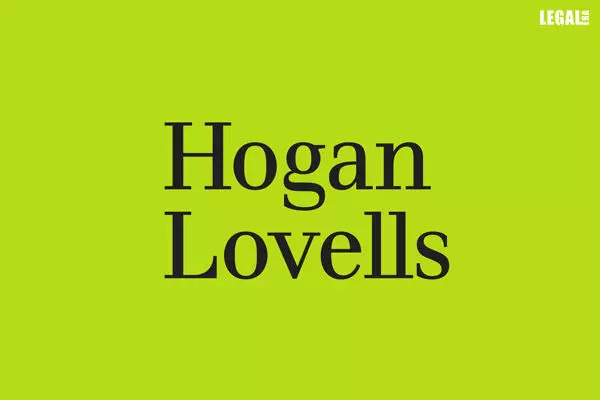- Home
- News
- Articles+
- Aerospace
- Agriculture
- Alternate Dispute Resolution
- Banking and Finance
- Bankruptcy
- Book Review
- Bribery & Corruption
- Commercial Litigation
- Competition Law
- Conference Reports
- Consumer Products
- Contract
- Corporate Governance
- Corporate Law
- Covid-19
- Cryptocurrency
- Cybersecurity
- Data Protection
- Defence
- Digital Economy
- E-commerce
- Employment Law
- Energy and Natural Resources
- Entertainment and Sports Law
- Environmental Law
- FDI
- Food and Beverage
- Health Care
- IBC Diaries
- Insurance Law
- Intellectual Property
- International Law
- Know the Law
- Labour Laws
- Litigation
- Litigation Funding
- Manufacturing
- Mergers & Acquisitions
- NFTs
- Privacy
- Private Equity
- Project Finance
- Real Estate
- Risk and Compliance
- Technology Media and Telecom
- Tributes
- Zoom In
- Take On Board
- In Focus
- Law & Policy and Regulation
- IP & Tech Era
- Viewpoint
- Arbitration & Mediation
- Tax
- Student Corner
- AI
- ESG
- Gaming
- Inclusion & Diversity
- Law Firms
- In-House
- Rankings
- E-Magazine
- Legal Era TV
- Events
- News
- Articles
- Aerospace
- Agriculture
- Alternate Dispute Resolution
- Banking and Finance
- Bankruptcy
- Book Review
- Bribery & Corruption
- Commercial Litigation
- Competition Law
- Conference Reports
- Consumer Products
- Contract
- Corporate Governance
- Corporate Law
- Covid-19
- Cryptocurrency
- Cybersecurity
- Data Protection
- Defence
- Digital Economy
- E-commerce
- Employment Law
- Energy and Natural Resources
- Entertainment and Sports Law
- Environmental Law
- FDI
- Food and Beverage
- Health Care
- IBC Diaries
- Insurance Law
- Intellectual Property
- International Law
- Know the Law
- Labour Laws
- Litigation
- Litigation Funding
- Manufacturing
- Mergers & Acquisitions
- NFTs
- Privacy
- Private Equity
- Project Finance
- Real Estate
- Risk and Compliance
- Technology Media and Telecom
- Tributes
- Zoom In
- Take On Board
- In Focus
- Law & Policy and Regulation
- IP & Tech Era
- Viewpoint
- Arbitration & Mediation
- Tax
- Student Corner
- AI
- ESG
- Gaming
- Inclusion & Diversity
- Law Firms
- In-House
- Rankings
- E-Magazine
- Legal Era TV
- Events
Hogan Lovells Advised UK Government in Defeating Challenges to Bulb Sale to Octopus

Hogan Lovells Advised UK Government in Defeating Challenges to Bulb Sale to Octopus
British Gas, Scottish Power, and E.ON have had their judicial review challenges dismissed by the UK High Court. The challenges pertained to the UK Government's approval of the transfer of Bulb to Octopus.
Successfully defending these challenges necessitated a multi-disciplinary team with extensive knowledge of the energy sector, public law, and subsidy control. Hogan Lovells collaborated with the Government Legal Department to guide the UK Government in tackling intricate and evolving issues in the context of an untested subsidy control regime in the UK.
The advice provided by Hogan Lovells proved instrumental in enabling the UK Government to achieve a favourable outcome in a landmark legal case.
Charles Brasted, the deputy practice group leader for Global Regulatory and IPMT and the head of public law and policy, as well as Ciara Kennedy-Loest, who specialises in subsidy control, were at the helm of the Hogan Lovells’ team. Both are London-based partners.
Hogan Lovells' top-tier restructuring, subsidy control, and energy teams have been guiding the UK Government since November 2021, when Bulb entered administration. Throughout 2022, the Administrators appointed by Teneo to oversee Bulb conducted a thorough marketing process to determine how to conclude the Administration in accordance with their statutory obligations.
The Administrators ultimately proposed the sale of Bulb's business to Octopus, a proposal that was subsequently approved by Grant Shapps MP, the Secretary of State, along with the provision of Government funding related to the transaction.
Among other arguments, British Gas, Scottish Power, and E.ON contended that the Secretary of State had made incorrect judgments about the fairness of the marketing process conducted by the Administrators and that the Government had unlawfully provided subsidies. These were the focal points of the legal challenges that the three companies brought against the Secretary of State's decisions.
Hogan Lovells collaborated with officials from the Department for Energy Security and Net Zero (DESNZ), in-house legal advisers at DESNZ, the Government Legal Department, and top counsel to construct the Government's response to the challenges.
The High Court rejected the challenges after finding that the claimants had delayed in bringing their claims and that the Secretary of State had reasonably based his decisions on the administrators' advice.
The Court also found that the Secretary of State was justified in concluding that the marketing process had been carried out in an open, non-discriminatory, and competitive manner and that Octopus's bid for Bulb reflected market value, with any subsidies granted being proportionate.
The ruling by the High Court offers valuable guidance on how the Court will evaluate whether a subsidy granted by the UK Government or another public entity is legal.




